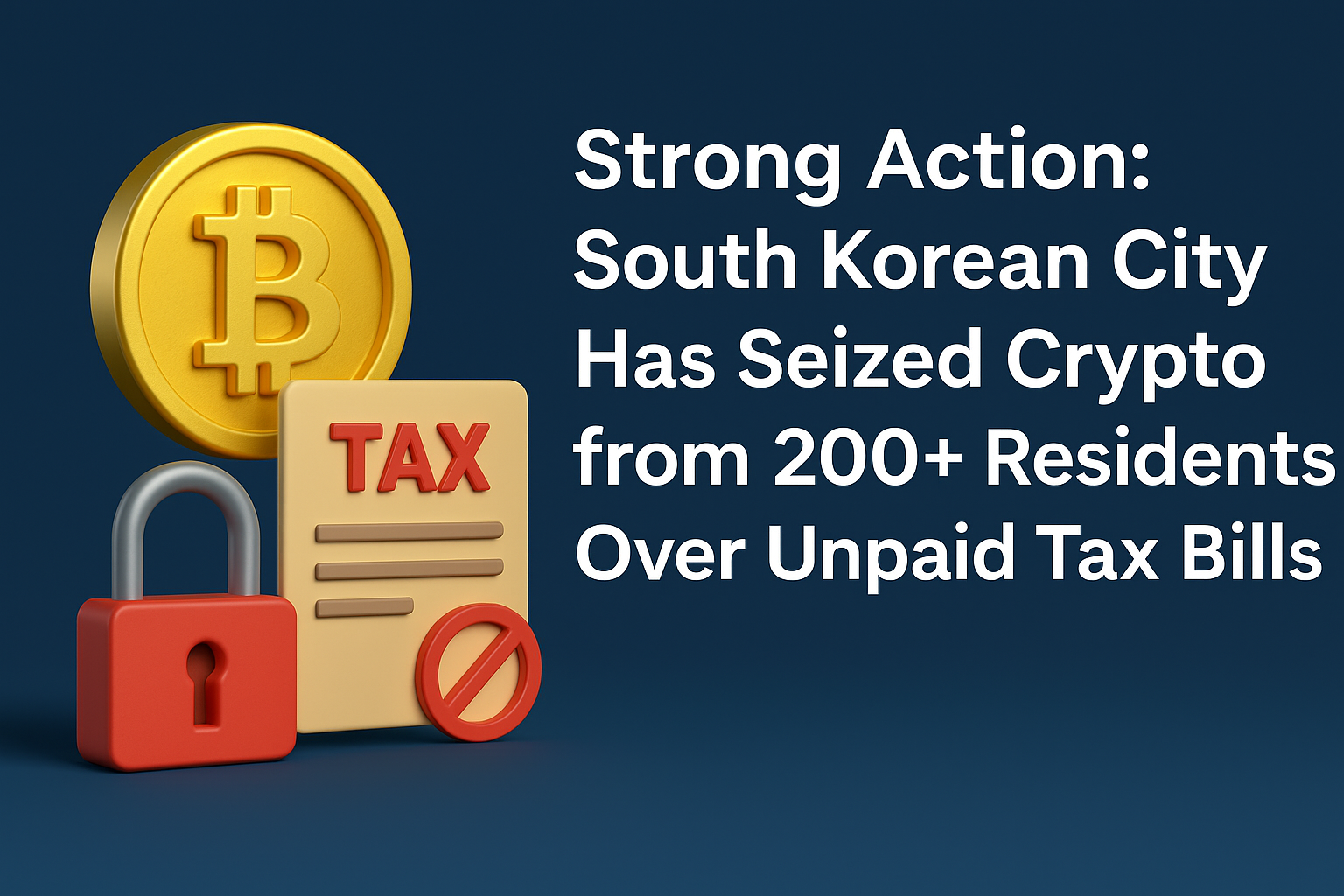Cheongju, a city in North Chungcheong Province, South Korea, has made headlines for seizing cryptocurrencies from over 200 residents with outstanding tax bills. The move highlights a growing nationwide trend where authorities are closing gaps in financial accountability by targeting digital assets.
Seizure Details and Tax Evasion Cases
Since 2021, Cheongju officials have confiscated crypto currencies from 203 residents identified as tax evaders. Among them, 161 individuals owe nearly 1.5 billion Korean won (around USD 1.1 million) in unpaid local taxes. This large-scale recovery has been hailed as a success, showing the city’s determination to address tax non-compliance in the crypto sector.
This action is one of the clearest examples yet of how local governments can uncover hidden wealth and enforce financial laws against delinquent taxpayers.
Mechanism Behind the Crypto Confiscation
In the past, local governments struggled with the technicalities of handling digital assets. They could freeze accounts but lacked a reliable system to liquidate crypto holdings into usable funds. Cheongju resolved this by creating its own municipal crypto wallet, developed in partnership with a domestic exchange.
The process follows four steps:
- Identifying delinquent taxpayers through cross-checks between tax records and crypto exchange data.
- Compelling exchanges to disclose wallet details of flagged individuals.
- Moving the seized crypto into the city-controlled wallet.
- Converting the assets into fiat currency to offset unpaid taxes.
This streamlined framework ensures cryptocurrencies are treated with the same seriousness as traditional property in enforcement cases.
Regulatory Support and National Policy
The Financial Services Commission (FSC) recently updated its policies, allowing government bodies and non-profits to buy, hold, and sell cryptocurrencies under official guidelines. This shift has strengthened Cheongju’s ability to enforce tax compliance.
City officials stress that their goal is fairness—ensuring responsible taxpayers are not burdened while others attempt to hide income through crypto. They argue that cryptocurrencies can no longer act as a shield from regulatory oversight.
Other Cities Following the Trend
Cheongju is not the only city taking action. In Seoul’s affluent Gangnam district, authorities have reported crypto seizures worth 340 million won (approximately USD 244,480) linked to unpaid taxes. This shows a broader nationwide effort to ensure that cryptocurrencies fall within the same legal and financial frameworks as other assets.
Impact on Taxpayers and the Crypto Industry
This crackdown signals a turning point for both individuals and the wider crypto ecosystem. Taxpayers who once believed digital assets could remain hidden are learning that blockchain transactions can be traced and monitored.
For the crypto industry, stricter oversight could bring both challenges and benefits:
- Challenges: more compliance checks and regulatory hurdles.
- Benefits: improved trust, legitimacy, and integration into the mainstream financial system.
Overall, it sets the stage for cryptocurrencies to evolve beyond tools for evasion into accepted, regulated assets.
Conclusion
The Cheongju case has established a new benchmark for tax enforcement in South Korea. By seizing cryptocurrencies from more than 200 residents, the city has shown that digital assets are no longer untouchable. Similar measures across the country reflect a nationwide shift toward stronger regulation and compliance.
For crypto holders, the message is unmistakable: unpaid taxes cannot be hidden behind digital wallets. Compliance is becoming a non-negotiable requirement, and governments are ready to act decisively.



